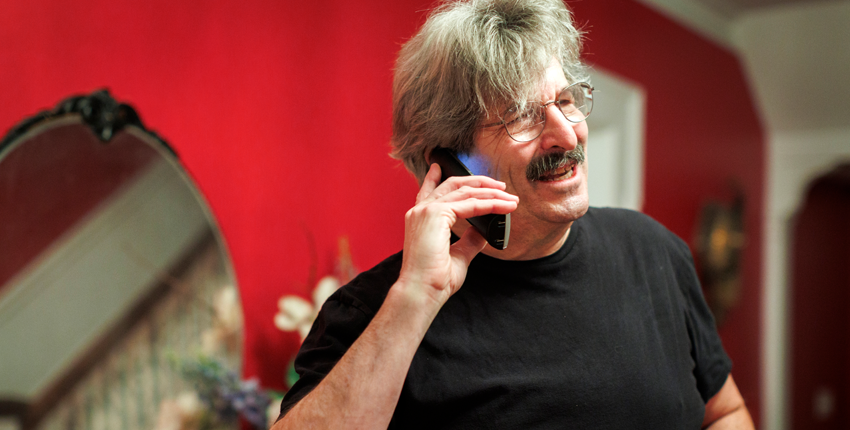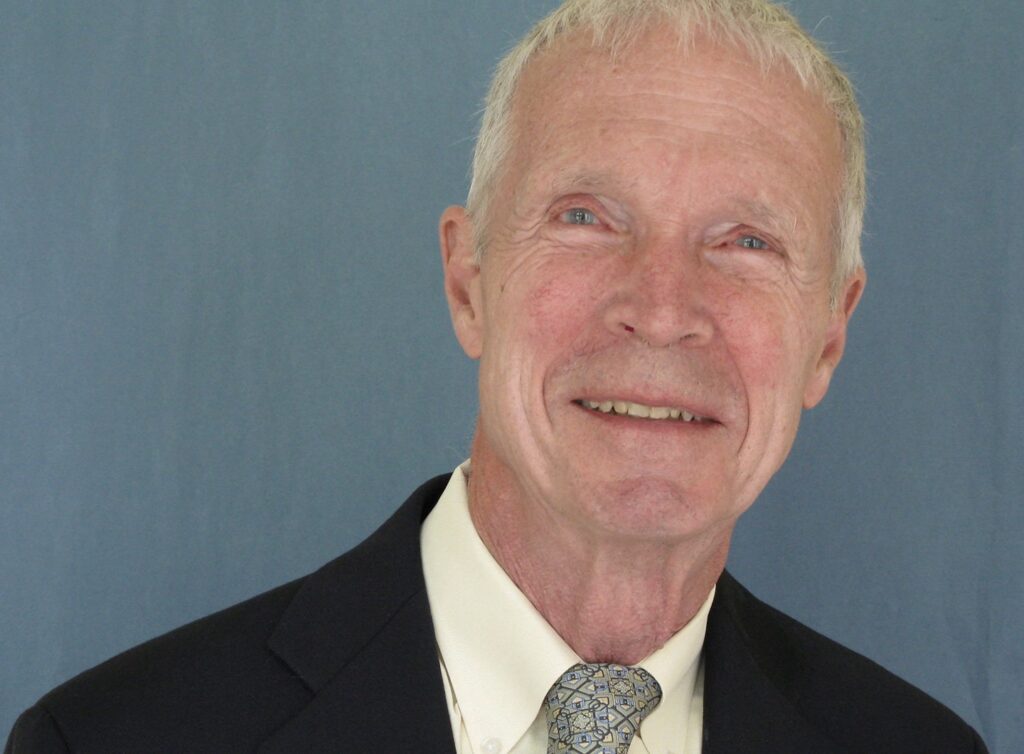This year’s Nobel Prize in Chemistry was shared by David Baker, a biochemist who received his Ph.D. from UC Berkeley in 1989 working with Randy Schekman, a professor of molecular and cell biology who won the 2013 Nobel Prize in Physiology or Medicine.
At Berkeley, Baker conducted research primarily on protein transport and protein trafficking in yeast, the field in which Schekman received the prize.
“His energy, enthusiasm and brilliance transformed the work in my lab to allow a biochemical approach to advance our genetic analysis of the mechanism of protein secretion,” Schekman said. “Baker’s success is no accident. He has the rare gift of creativity and confidence to make magic happen in the lab.”
After a postdoctoral fellowship at UCSF, Baker joined the biochemistry faculty at the University of Washington School of Medicine in Seattle and began working on computational methods for predicting and designing the structures and functions of proteins.
In 2003, he used a computer program he had developed named Rosetta to design a totally new protein that was unlike any other known. Baker and colleagues went on to show that a wide range of protein structures could be designed using the Rosetta software.
“Since then, his research group has produced one imaginative protein creation after another, including proteins that can be used as pharmaceuticals, vaccines, nanomaterials and tiny sensors,” according to a press release by the Nobel Foundation. Baker, the foundation noted, “has learned how to master life’s building blocks and create entirely new proteins.”
“Baker’s team at the University of Washington led the way in the development of a powerful algorithm, Rosetta, to help solve a problem that has challenged biochemists for many decades: How do protein molecules fold into unique 3-dimensional structures?” Schekman said. “At the same time, Baker pioneered approaches to the ab initio design of novel proteins as reaction catalysts and more recently the development of anti-viral immunogens.”
Baker, 62, received half the prize, while the other half was shared by two scientists — Demis Hassabis and John Jumper — at Google DeepMind in London, who developed a machine learning tool, AlphaFold, that can predict the 3Dl structure of any protein from its amino acid sequence.
A protein’s 3D structure is key to its function, but scientists had struggled since the 1970s to understand how a protein’s amino acid sequence encoded that structure. Then, in 2020, Hassabis and Jumper developed a new version of the AI tool, AlphaFold2.
“With its help, they have been able to predict the structure of virtually all the 200 million proteins that researchers have identified,” according to the Nobel Foundation.
“It’s a truly exciting day for those of us interested in protein folding,” said Susan Marqusee, a Distinguished Professor of molecular and cell biology and of chemistry at UC Berkeley. “David has done as much as any living scientist to chart the path between the amino acid sequences of proteins and their three-dimensional structures. With the ability to design structures at will, the challenge for the future is to incorporate the dynamic movements and structural changes that are required for all sorts of biological function.”

Stephanie Mitchell/Harvard University
Earlier this week, another Berkeley graduate, Gary Ruvkun, shared the Nobel Prize in Physiology or Medicine for discovery of the critical role played by microRNAs in regulating genes. Ruvkun, who grew up in Berkeley, graduated from Berkeley in 1973 with a B.A. in biophysics. He currently is a professor of genetics at Harvard Medical School and a researcher at Massachusetts General Hospital.
“This recognition follows years of anticipation for this prize and matches their recognition with that of another Berkeley grad, Andrew Fire, who shared the Nobel with Craig Mello for the discovery of small interfering RNAs, which, when introduced into cells, form double-stranded RNA molecules that similarly can control gene expression,” Schekman said. “Both discoveries have had a substantial impact on our understanding of and ability to manipulate the expression of genes in higher organisms.”
This year’s Nobel Prize in Physics was also shared by a scientist with ties to Berkeley. John Hopfield was an assistant professor in the department of physics between 1961 and 1964 before leaving for Princeton University and switching fields from theoretical condensed matter physics to biophysics. Marvin Cohen, now a Berkeley professor emeritus of physics, was hired to take his place.

Courtesy of John Hopfiel
“I took over his grad students after he left,” Cohen said. “Eventually, he (Hopfield) changed fields to biological physics. I remember trying to talk him out of that. He made excellent contributions to that field, and I believe that his varied background prepared him for the work he did that was recognized by the Nobel committee.”
The Nobel Foundation cited his “foundational discoveries and inventions that enable machine learning with artificial neural networks.”
Hopfield had another connection to Berkeley: his father, John Joseph Hopfield, a Polish immigrant, received his Ph.D. in physics from Berkeley in 1923 with the late Raymond Birge as his adviser. A spectroscopist, Hopfield became an instructor and assistant professor of physics before leaving in 1928 to conduct research in Berlin. His son was born in 1933.
RELATED INFORMATION


1 Comment
znkm9i